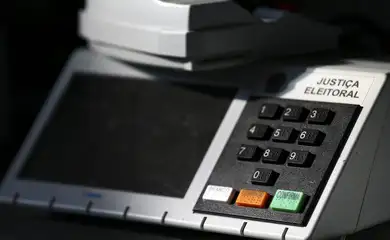Indigenous candidacies for October elections up 14.13%

Based on the records of Brazil’s Superior Electoral Court, the Institute for Socio-Economic Studies (INESC) published the study Perfil do Poder – Eleições 2024 (“Profile of Power – 2024 Elections”), in partnership with the Common Data collective, with an overview of registered candidacies.

The survey shows that, considering the candidacies for all three positions by skin color and race, this year, 207,467 (45.64%) candidates declared themselves to be white; 187,903 (41.34%) pardos (mixed); 51,782 (11.39%) black; 2,479 (0.55%) indigenous; 1,756 (0.39%) yellow (East Asian); and 3,141 (0.69%) did not inform their skin color or race.
The study found that the number of hopefuls who declared themselves indigenous increased in this year’s elections. Their number rose from 2,172 in 2020 to 2,479 in 2024, up 14.13 percent. The expansion was seen across Brazil.
Stating skin color or race in candidacy registrations became mandatory in this year’s elections. And for the first time, applicants had the option of declaring their specific ethnicity. Of the 2,479 indigenous candidates registered, 1,966 disclosed their ethnicity, which amounted to 176 ethnic groups, the court reported. The three largest are the Kaingang (168 candidacies), Tikúna (150), and Makuxí (107). In gender terms, 1,568 (63.25%) are men and 911 (36.75%) are women.
“The possibility of declaring ethnic-racial [indigenous] and ethnic-territorial identity [ethnicity] could help curb fraud, as it indicates that the candidate is linked to an indigenous territory, a collectivity,” the study concludes saying.
The institute believes the general rise reflects the greater political engagement of these communities across Brazil. However, it considers that representation in executive positions is still limited.
The institute’s political adviser Carmela Zigoni believes the interplay of forces in such spaces of elective power—in the executive branch as well as in legislative houses—is bad for indigenous people elected representatives.
This is believed to be the case because the participation of indigenous people in spaces of power is still low and they face challenges in trying to propose public policies and laws to protect their peoples and territories, at a time when predatory agriculture and mining are advancing.
“The [indigenous people] who succeed in getting elected face racism and gender-based political violence in institutional spaces. But it’s essential that they are prepared to go on this mission, to try and stop setbacks and seek to guarantee their rights,” she argued.
Brazil
Brazil’s 2022 census revealed that the country is home to nearly 1.7 million indigenous people—0.83 percent of the country’s total population, with its 266 indigenous peoples.
Most indigenous people (867,900, or 51.2%) live in the Legal Amazon, a region made up of the northern states, plus Mato Grosso and a section of Maranhão.
The census also revealed that a significant number of indigenous people are young, with over half being under 30 years of age (56.10%).
Municipal elections
According to the Superior Electoral Court, of the 461,703 candidacies submitted for the October elections, 15,478 are running for mayor, 15,703 for deputy mayor, and 430,522 for city councilor.
The Brazilian electoral system has reported that this year’s municipal election is the biggest ever, as voters exceed 155.91 million—140.03 million of whom do not have skin color and race information on their electoral registry. Among the electorate that does have this information, 8.5 million (5.45%) are pardos; 5.29 million (3.39%) are white; 1.8 million (1.16%) are black; 155,600 (0.10%) are indigenous; and 114.38 (0.07%) are yellow.
The first round of municipal elections is scheduled to take place on October 6. The second round should be held on October 27 in cities with more than 200 thousand voters, wherever none of the candidates for the post garners more than half of the valid votes (blank and null votes not included).






